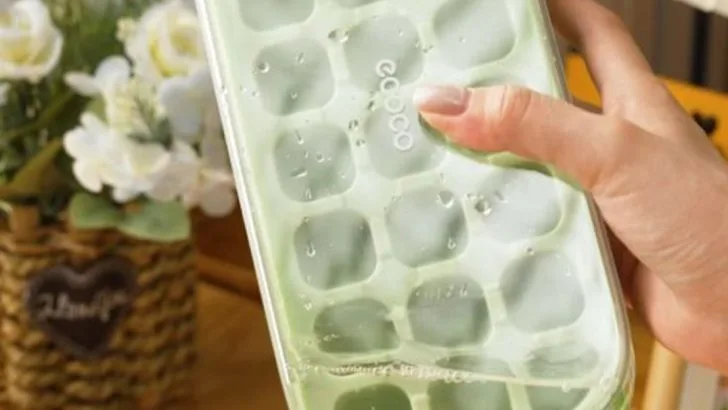You know that drawer—the one stuffed with random bits and pieces you’re not sure why you’re keeping? Turns out, it’s actually a goldmine for your garden. From old keys to broken jewelry, forgotten chargers to bottle caps, that so-called “junk” can be surprisingly useful once you step outside.
Why buy fancy garden tools or decor when you probably already have everything you need gathering dust? Whether you’re looking to label your herbs, support your seedlings, or create clever hacks for everyday garden tasks, your junk drawer might just hold the perfect solution.
Here are 19 unexpected items hiding in your home right now that can make your gardening easier, smarter, and way more creative—no spending required.
Bread Twist Ties
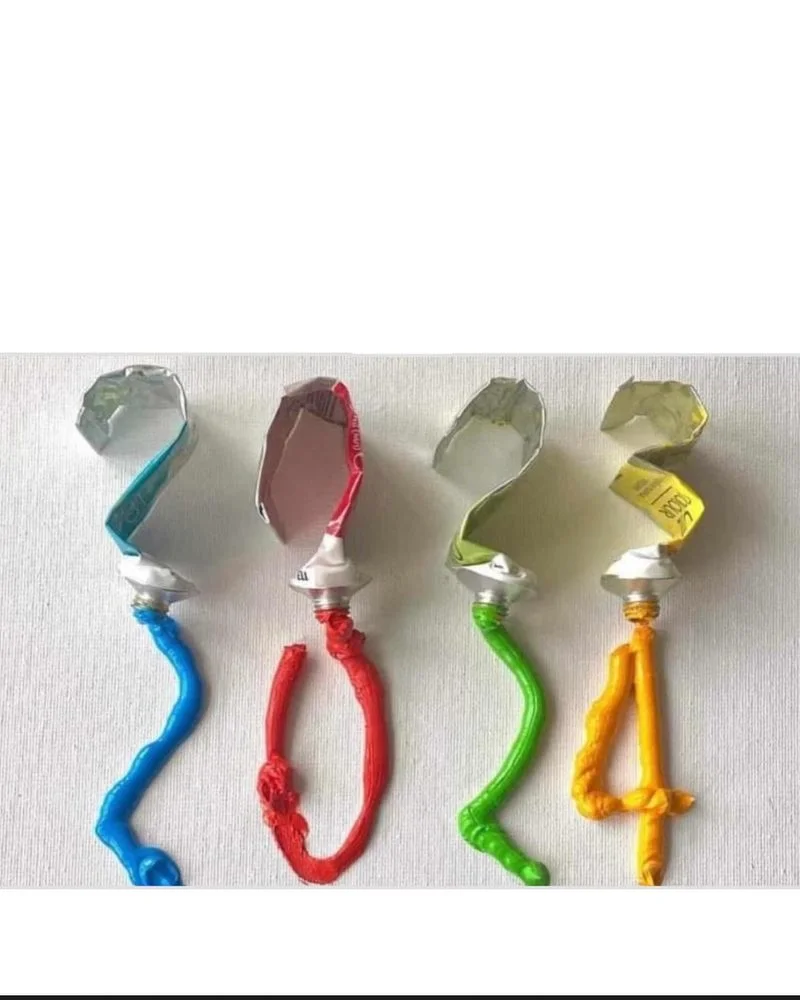
Ever wondered what to do with those pesky bread twist ties? These humble items can work wonders in the garden. They’re perfect for securing delicate stems to stakes, ensuring your plants grow strong and upright. Simply twist them gently around the stem and stake for a firm hold without causing damage. In addition to their supportive role, twist ties can be reused multiple times. Their flexibility makes them ideal for various garden tasks, whether taming unruly vines or organizing garden tools. So, next time you open a loaf of bread, save those ties for your garden toolkit.
Old Toothbrush
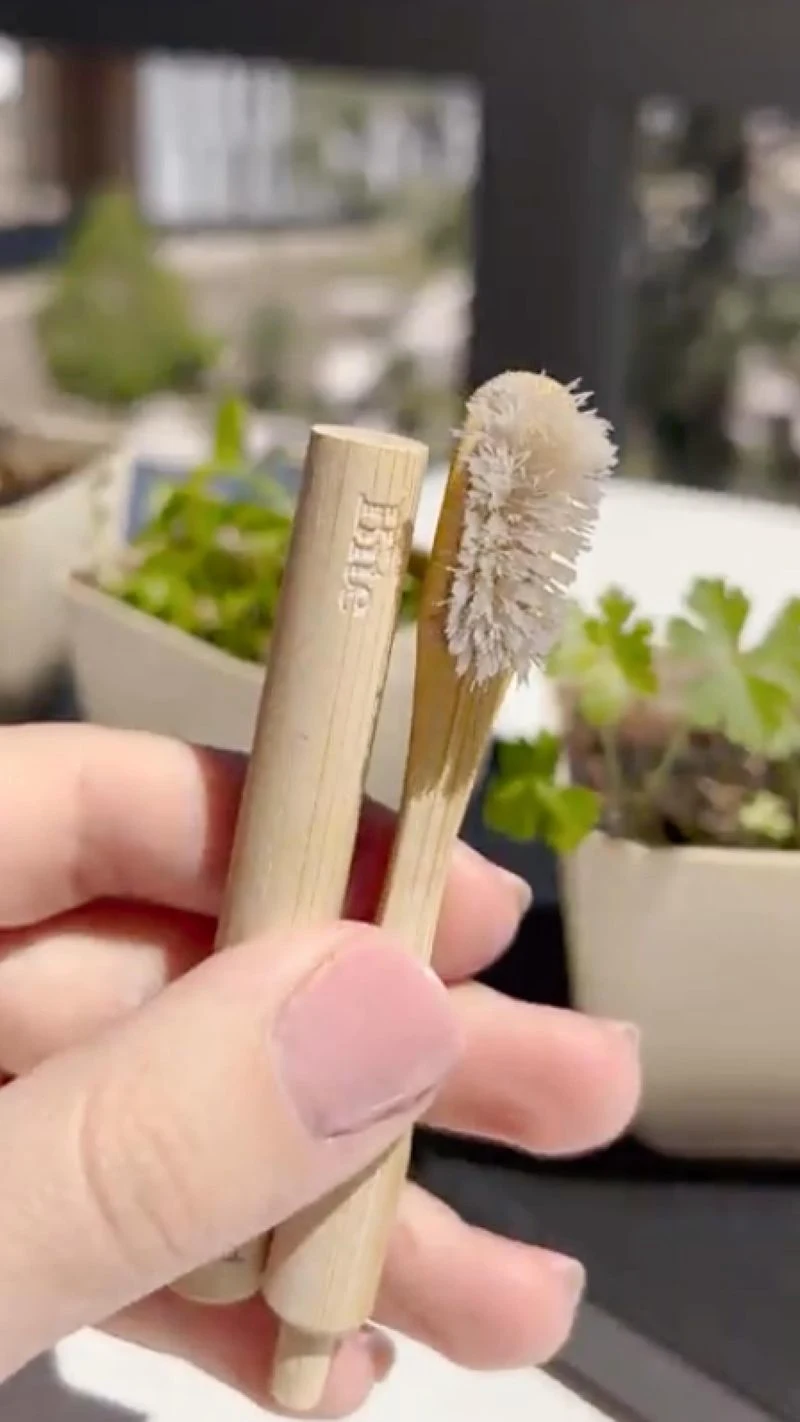
That old toothbrush isn’t just destined for the trash. It’s a fantastic cleaning tool for your garden. Use its bristles to scrub off dirt and grime from your gardening tools, ensuring they remain in top condition. The compact size allows you to reach into nooks and crannies that larger brushes can’t. Additionally, it’s perfect for cleaning around plant pots and garden ornaments. Keep a few of these in your garden shed, and you’ll never have to worry about dirty tools again. It’s an easy and effective way to prolong the life of your garden equipment.
Wine Corks
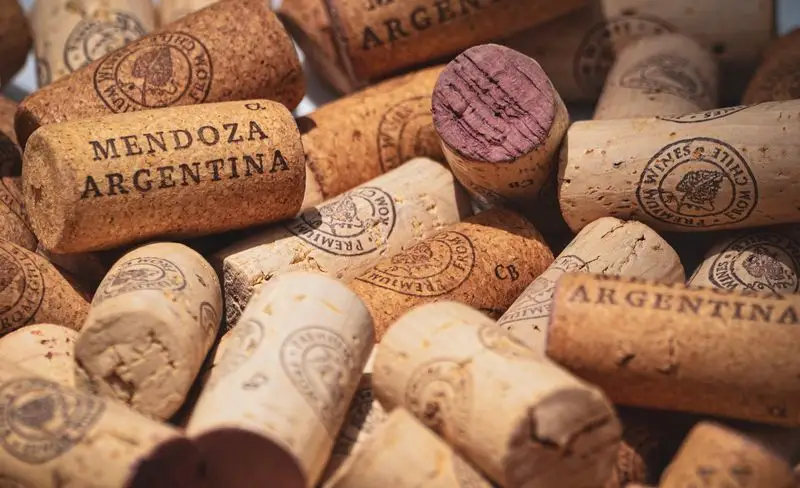
Wine corks have a charming second life as garden markers. Write the names of your plants on them, and you’ll have an eco-friendly way to identify your garden’s flora. Simply attach a skewer or stick to the cork and place it in the soil. Corks are naturally resistant to water, making them perfect for outdoor use. Their rustic appearance adds a touch of character to any garden setting. Plus, using wine corks is a great conversation starter for visitors admiring your garden. Turn your next wine evening into an opportunity to gather supplies for your gardening projects.
Plastic Spoons
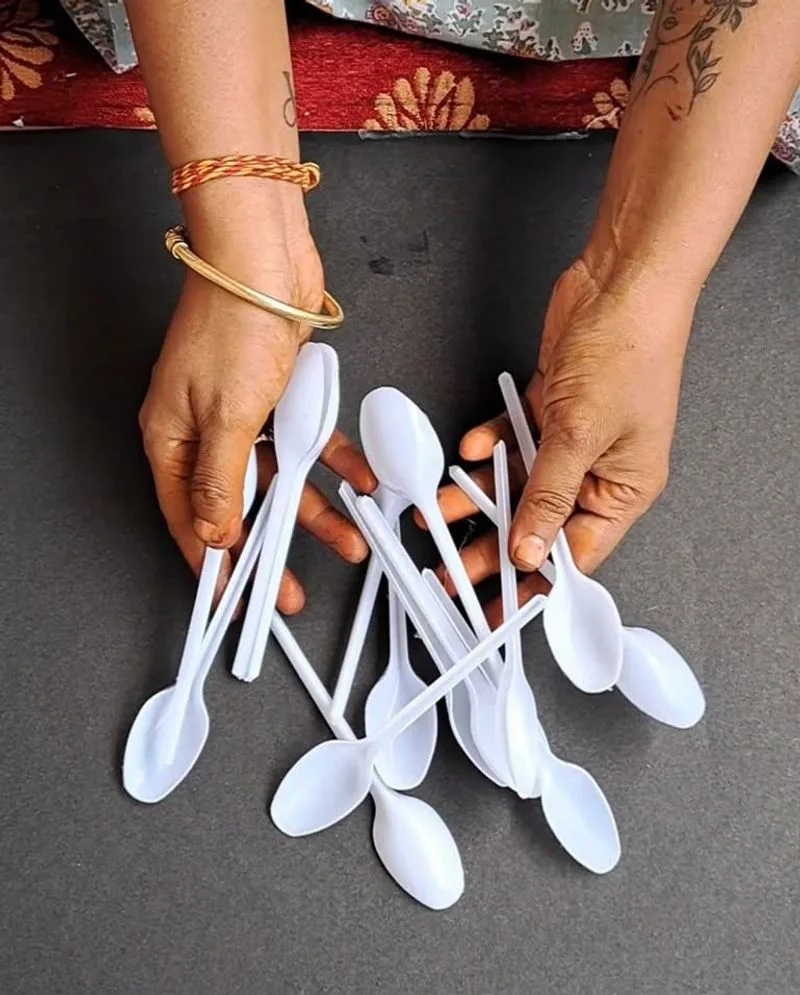
Plastic spoons might not seem garden-friendly, but they’re perfect for labeling seedlings. Write the plant names on the spoon handles, and you’ll have a durable, weather-resistant marker. They’re especially useful in seed trays, where space is limited. The bright colors of plastic spoons make them easy to spot among the greenery. This simple repurposing trick helps keep your garden organized and ensures you won’t mix up your seedlings. Instead of discarding these spoons, give them a new purpose in your garden, adding both functionality and a pop of color.
Paper Clips
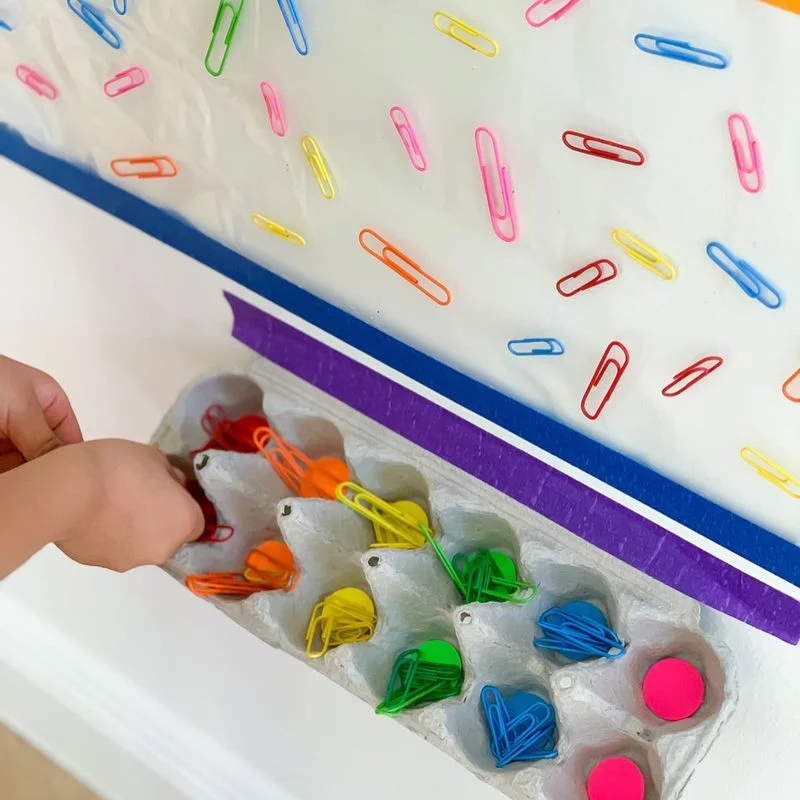
Don’t underestimate the versatility of paper clips. In the garden, they can secure row covers, hold plant labels, or even tie plants to supports. Their small size and unobtrusive appearance make them perfect for delicate tasks. Simply bend them as needed for a custom fit. They’re particularly handy when you need a temporary fix or a quick solution. This little office staple can easily transition from desktop to garden shed, proving its worth as a multipurpose tool. Next time you’re organizing your office supplies, set aside a few clips for your gardening adventures.
Rubber Bands
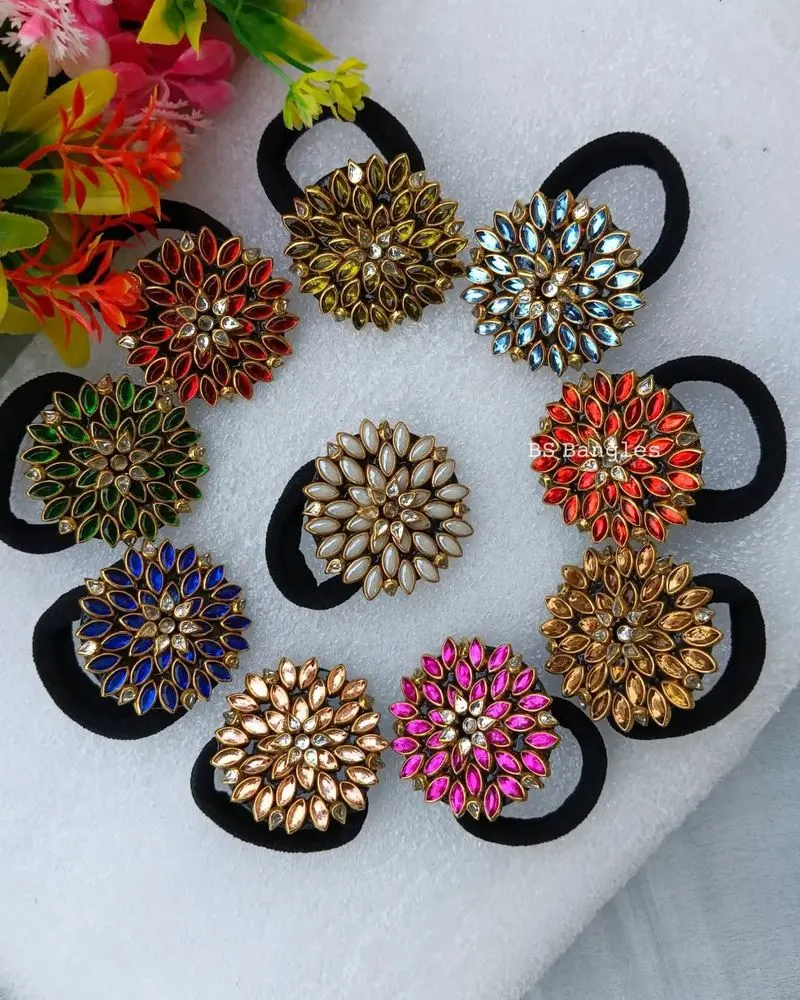
Rubber bands are surprisingly useful in the garden. Use them to bundle herbs for drying, or to secure budding plants to their trellises. Their elasticity provides a gentle hold that won’t damage delicate stems. In the absence of garden twine, a rubber band can be a quick and effective substitute. They’re also handy for keeping plant stakes together when not in use. Stash a few in your garden apron to have them at the ready. This simple addition to your gardening toolkit can simplify many tasks, making them indispensable during harvest time.
Unused Chopsticks
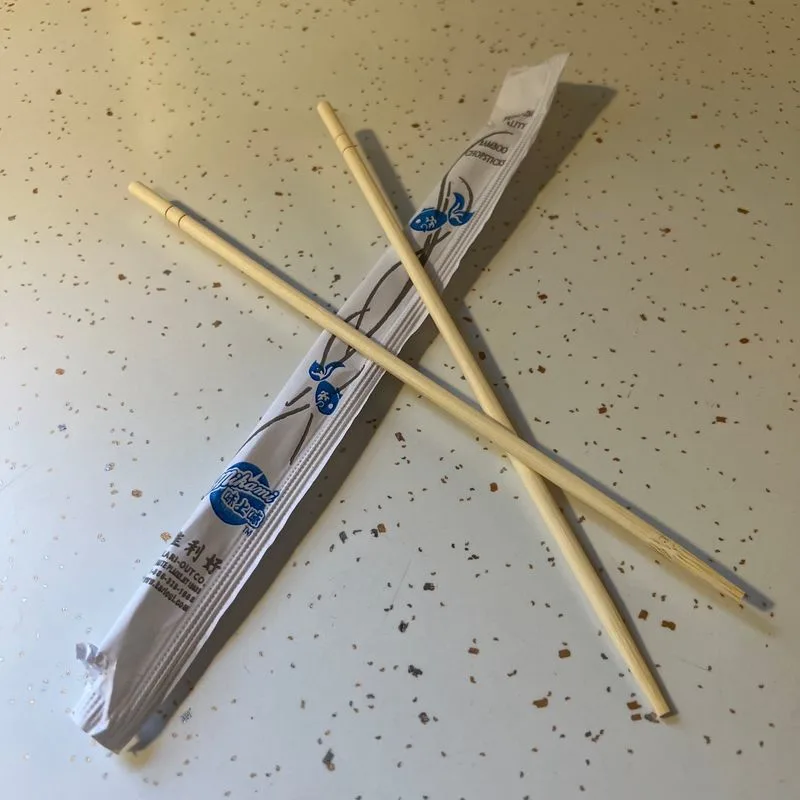
Unused chopsticks can find a new life as plant supports. They’re perfect for supporting young seedlings or small plants in need of a little extra help. Simply insert them into the soil next to your plant and gently tie the stem to the chopstick. Their slim design allows them to blend seamlessly into your garden landscape. Additionally, chopsticks can be used to aerate soil or as dibbers when planting seeds. Keep a stash of these versatile tools in your garden shed for whenever you need a quick fix for plant support.
Broken Dishes
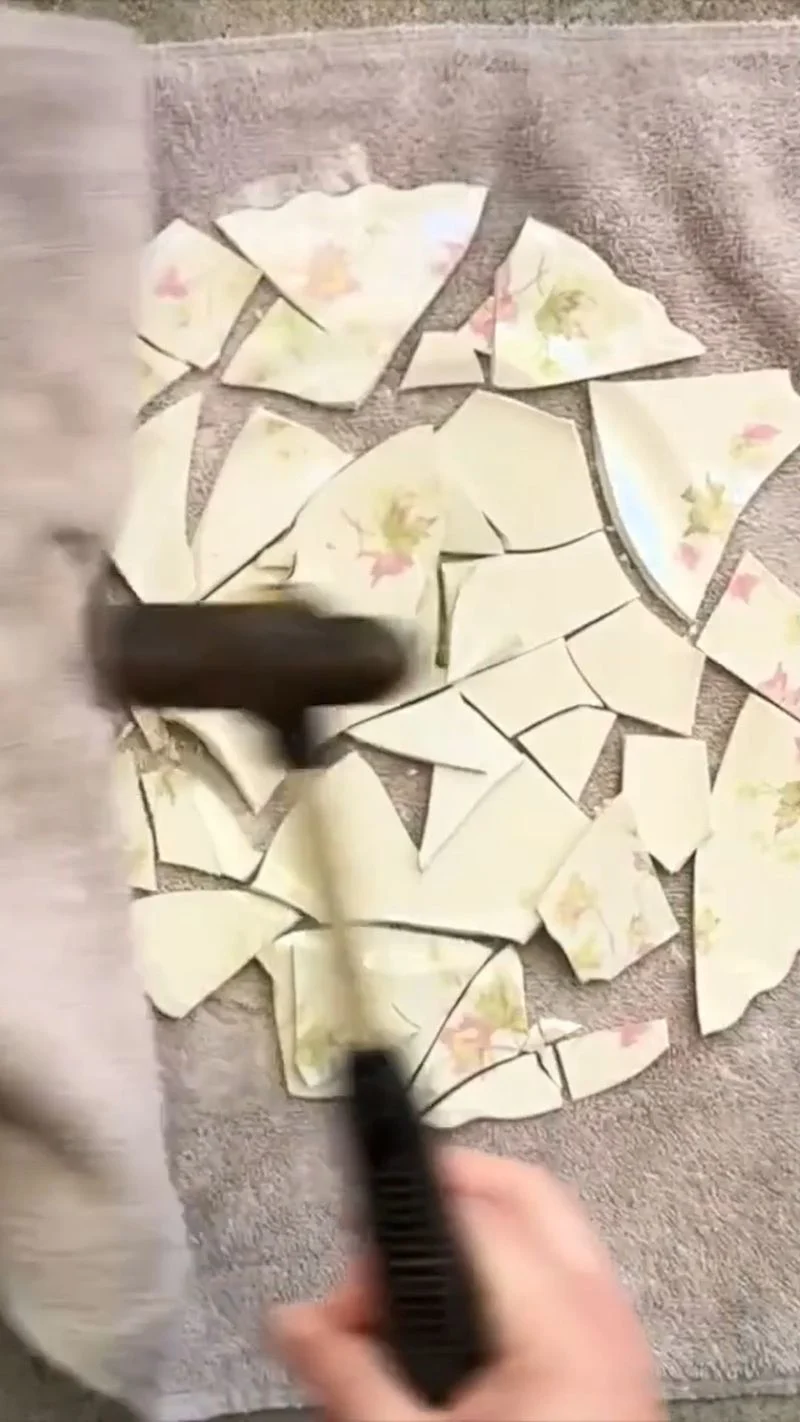
Even broken dishes can have a place in your garden. Use ceramic fragments as decorative mulch, adding color and texture to your flower beds. They also help retain soil moisture and suppress weeds. Arranged artistically, these shards can become an eye-catching feature. Before discarding a broken plate, consider its potential to enhance your garden’s aesthetic. With a bit of creativity, even shattered crockery can contribute to your garden’s charm. This innovative approach not only recycles waste but also adds a personal touch to your outdoor space.
Old Keys
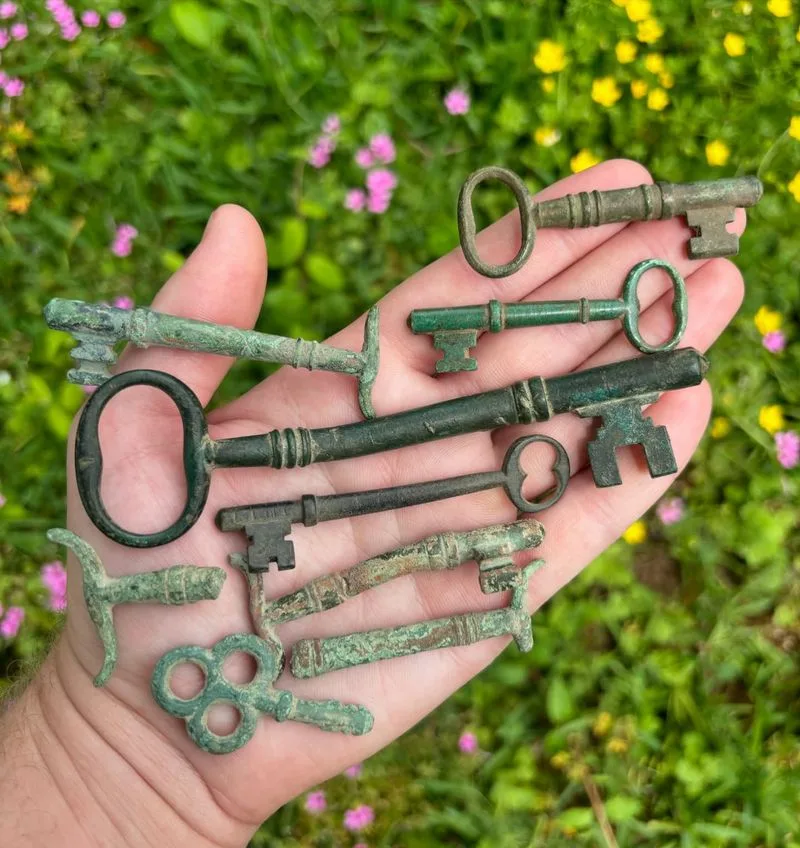
Old keys can jingle their way into garden decorations. Create wind chimes by stringing them together, adding a whimsical touch to your outdoor space. The gentle sound they produce in a breeze adds an auditory layer to your garden’s ambiance. These key chimes can hang from trees or garden hooks, providing both visual and acoustic appeal. It’s a creative way to repurpose metal waste while enhancing your garden’s charm. Next time you replace a lock, set aside the old keys for a delightful garden project that’s both simple and satisfying.
Egg Cartons
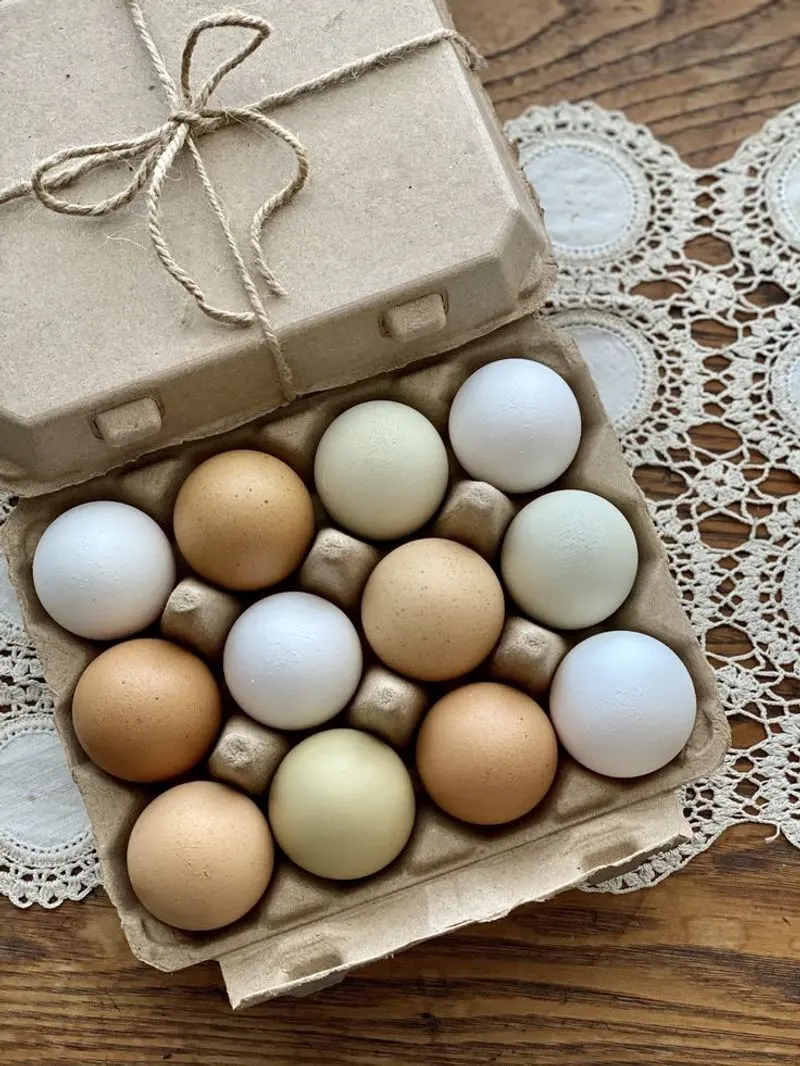
Egg cartons are a gardener’s delight when it comes to starting seeds. Fill each compartment with soil, and you’ve got a biodegradable seed starter. As seedlings grow, the entire carton can be planted directly into the ground. This reduces transplant shock and adds nutrients to the soil as the carton breaks down. It’s an eco-friendly solution that encourages waste reduction. Whether you’re growing herbs or flowers, egg cartons provide a simple and effective way to give your plants a head start. Keep a few on hand for your next planting season.
Mason Jars
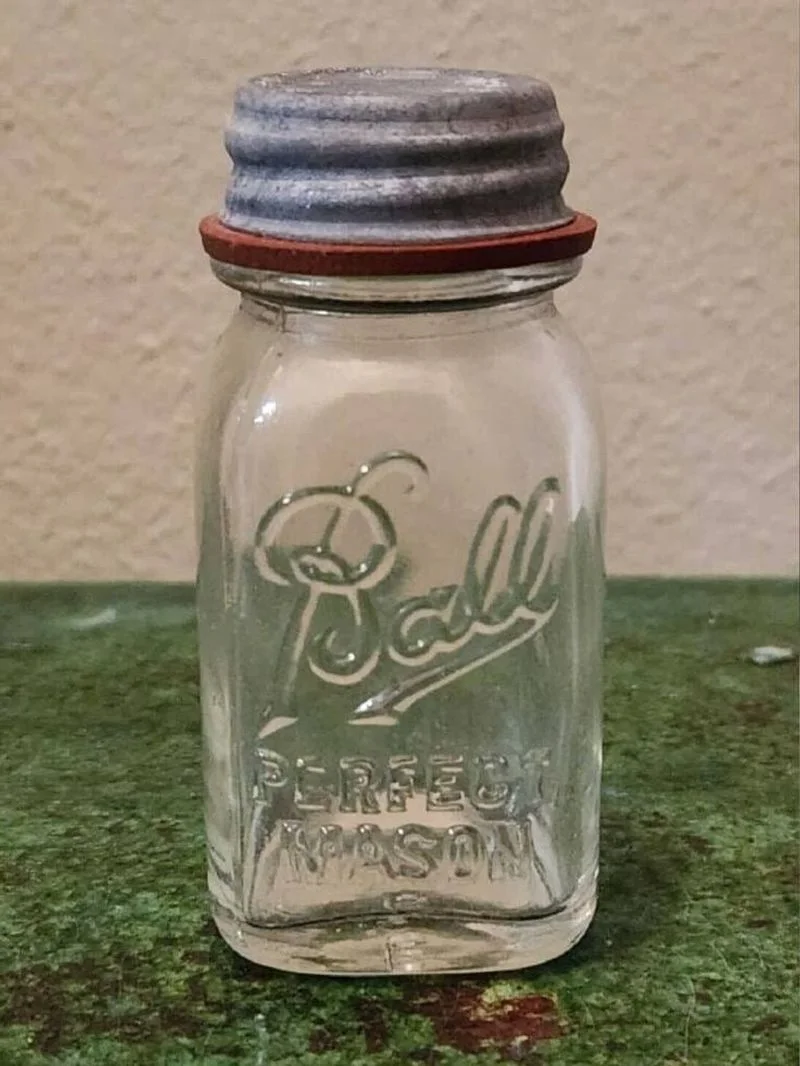
Mason jars are perfect mini greenhouses for seedlings and delicate plants. Cover your young plants with a jar to create a controlled environment, protecting them from harsh weather and pests. The clear glass allows sunlight to reach the plants while maintaining warmth and humidity. This concept mimics the effects of a greenhouse on a smaller scale. Using mason jars is an aesthetic way to nurture your garden while reutilizing common kitchen items. Their versatility and charm make them a favorite among gardeners looking to add a touch of rustic elegance to their outdoor space.
Old CDs
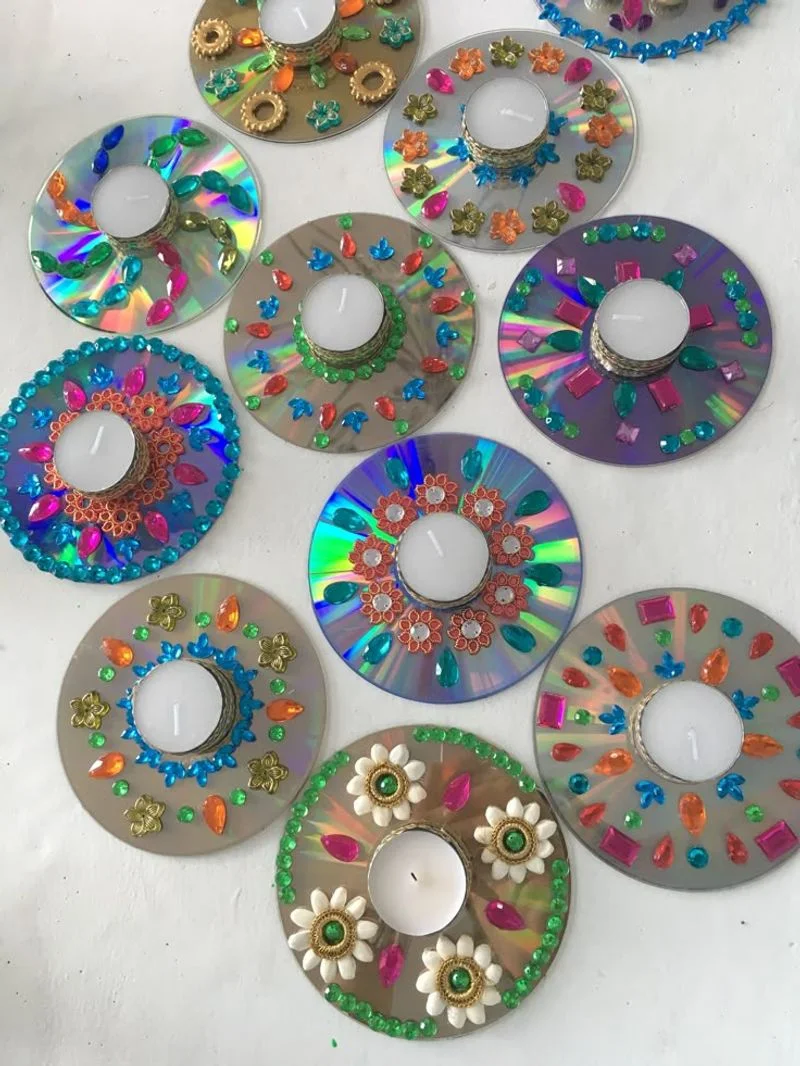
Old CDs bring a dash of dazzle to your garden. Hang them from trees or stakes to reflect sunlight, creating a mesmerizing display. This reflective property also serves a practical purpose: deterring birds from nibbling on your plants. The CDs’ movement with the wind adds a dynamic element to your garden, both visually appealing and functional. It’s a creative way to recycle outdated media while protecting your crops. Whether you want to add sparkle or safeguard your garden, old CDs prove that even obsolete items can have their shine restored.
Ice Cube Trays
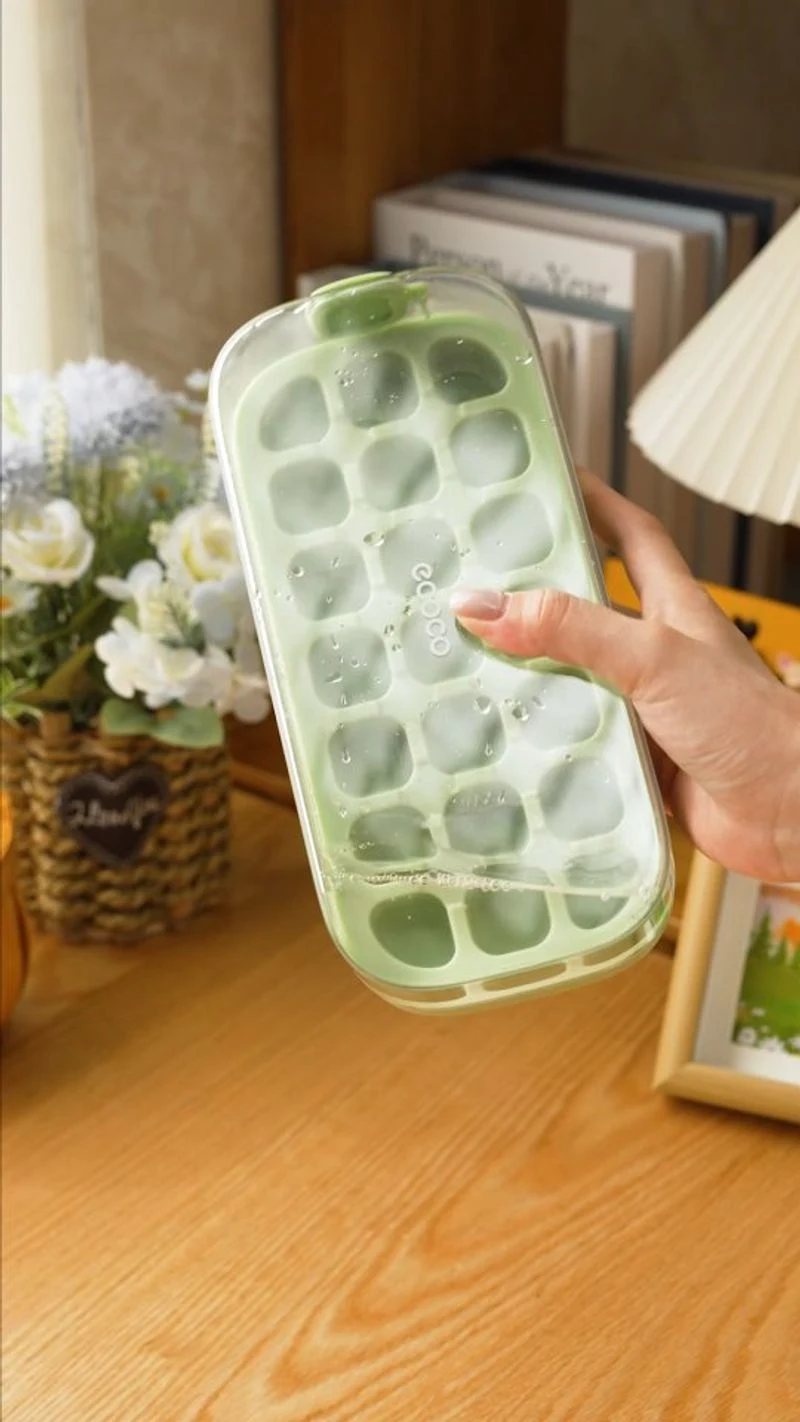
Ice cube trays find new life as molds for seedling plugs. Fill each compartment with soil, plant a seed, and you’ve got a neat, organized way to start your garden. Once the seedlings are ready to plant, simply pop them out. This method ensures minimal root disturbance. Ice cube trays are compact and easy to store, making them ideal for gardeners with limited space. Their uniform compartments help maintain an organized planting system. It’s a simple yet effective way to upcycle household items for gardening success, keeping your green endeavors tidy and efficient.
Aluminum Foil
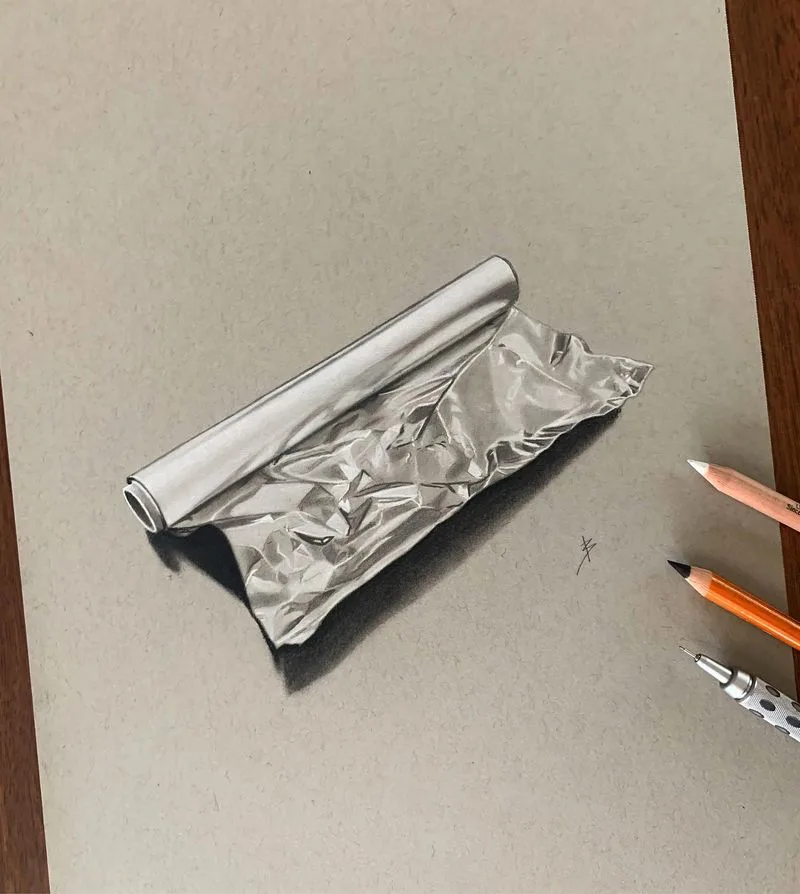
Aluminum foil isn’t just for the kitchen. Use it as a reflective mulch to direct sunlight onto plants, enhancing growth and repelling pests. The shiny surface can help regulate soil temperature, beneficial for warming the earth in cooler climates. It’s an eco-friendly alternative to plastic mulches, and its reusability makes it a sustainable choice. If you have leftover foil from cooking, consider laying it in your garden. It’s a simple, cost-effective way to boost plant health while utilizing materials you already have at home.
Old Socks
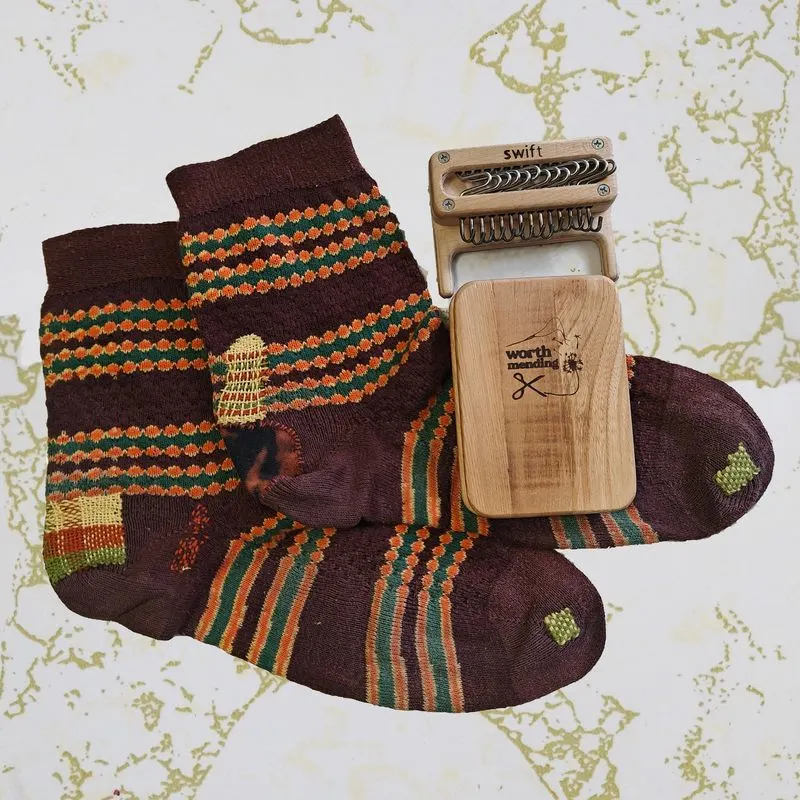
Old socks can protect your precious fruit from pests. Slip a sock over growing fruit to shield it from birds and insects. The fabric allows air and light to pass through while providing a barrier against unwanted nibblers. This method is particularly useful for delicate fruits like peaches and plums, ensuring they reach full ripeness undisturbed. Reusing socks in this way is a clever approach to sustainable gardening. Instead of relegating worn-out footwear to the trash, let them serve a productive purpose in your orchard or garden plot.
Cereal Boxes
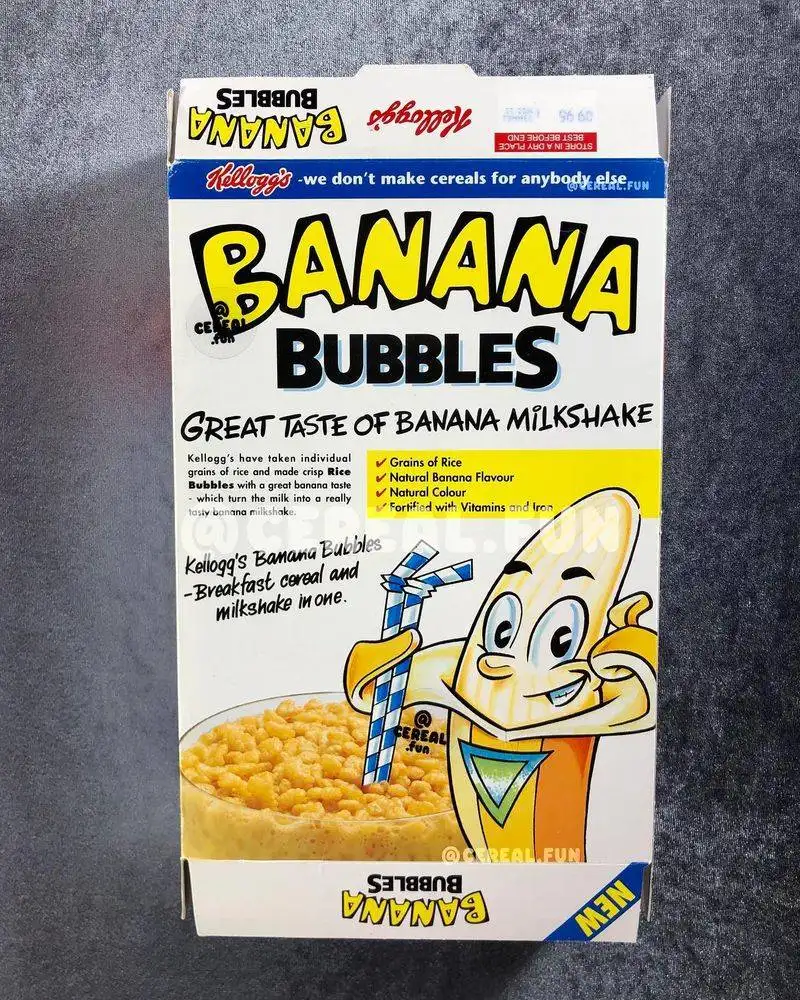
Cereal boxes make excellent weed barriers. Lay them flat on garden paths or between rows, and cover with mulch. This creates a protective layer that suppresses weeds while allowing water to permeate. The cardboard will decompose over time, enriching the soil. Using cereal boxes is an eco-friendly alternative to synthetic weed barriers, providing a practical solution to a common gardening problem. Before recycling your next cereal box, consider its potential as part of your garden’s groundwork. This simple act turns waste into a valuable resource for maintaining a tidy garden.
Shower Curtain Rings
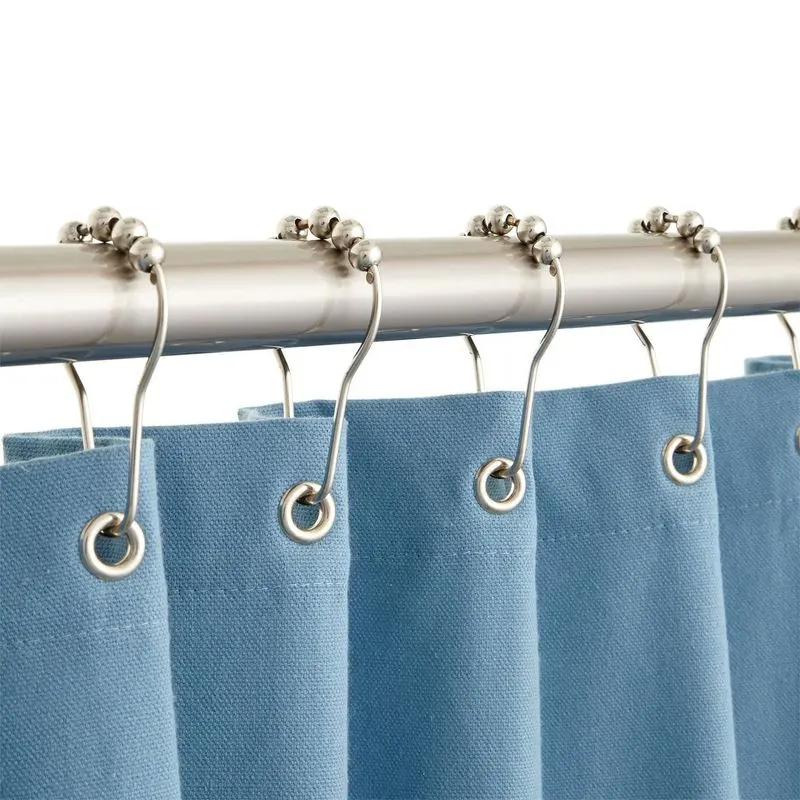
Shower curtain rings offer a clever way to organize garden tools. Clip them onto a pegboard or wall hooks, and hang tools for easy access. This keeps your gardening area tidy and efficient, ensuring you’re never searching for the right tool. The rings’ design allows for quick attachment and removal, making them ideal for frequently used items. Transform your garden shed into an organized haven by employing these rings. It’s a practical, stylish solution that keeps your tools within arm’s reach, utilizing items often overlooked in household storage.
Old Picture Frames

Old picture frames can find a new purpose as garden trellises. Their sturdy structure supports climbing plants, offering a creative twist on traditional trellis designs. Upcycle these frames by propping them against a wall or fence, guiding vines or flowers to weave through. This artistic approach adds character to your garden, providing both functionality and flair. Instead of discarding unused frames, consider their potential to enhance vertical space in your garden. It’s a stylish, eco-friendly way to repurpose household items while supporting your plants’ upward journey.

